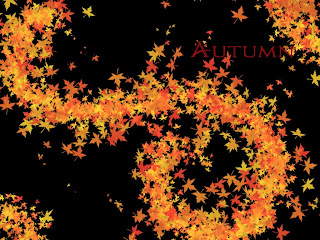Revolution & Mythless Myth
One of the reasons for this three-year ezine project is to try and draw into a virtual space images of the unconscious life of the world, the soul of this world as it speaks to us today, mythlessly. What is the soul of our earth doing when we act the way we act toward each other globally and communally?
Some say the "new age", the "new millenium" began at ground zero. One can suppose the image today at work in a revolutionary manner. What manner of soul is this expression of the presence of the absence in which that moment now presences itself? The one event, depicted in the twin "shadows" lit by night, and the soul of this soul-loss carries an unknown value, a zero― a zero; soul-making "rounds"! And, may I add, still at work underneath our radar, such soul gets around!One of the reasons for this three-year ezine project is to try and draw into a virtual space images of the unconscious life of the world, the soul of this world as it speaks to us today, mythlessly. What is the soul of our earth doing when we act the way we act toward each other globally and communally?
So, too the various ways contributors present this year's theme: revolution...as in "the action for turning again" as one of our authors below suggests. David L Miller says it this way, "The world is archetypally activist." For more on the meaning of this metaphor see David's essay, A Myth Is As Good As A Smile. Meanwhile, here are four more authors and a bit about their contributions to Mythopoetry Scholar eZine vol. 3.
Catherine Svehla
I received a beautiful painting done by cultural mythologer and essayist, Catherine Svehla called "Creation Story." Catherine will be contributing a reverie piece titled "Between the Worlds."
Catherine writes
Coyote comes and kicks the empty skull of that world. Old Man Coyote constructs a place fit for us all by deconstructing principles. Like the black dog that tugs on the loose thread in the garment of the world and pulls it apart so that it can never be completed and the weaving must continue and so the world keeps spinning.
Dave Alber
Cultural mythologer, Dave Alber wrote from China where he is teaching this term to say a little more about his contribution, "Myths and Moon Cakes: The Cosmological Symbolism of the Zhou Revolution."
The myth of Hou Yi the archer shooting down the nine suns is a polemical myth that describes the Zhou people working with the Hou tribe of barbarians ("yi") in the revolutionary overthrow of the Shang empire. The Shang, you see, had a solar calendar with a ten day week. Hou Yi shoots nine, leaving one left. Hou Yi is married to Chang-e who is associated with the moon. And so people with a lunar calendar defeat the people with the solar calendar. The Chang-e myth is known to every Chinese person as it is associated with Moon Festival celebrated every year. However, the cosmological origin of the myth has been lost. So, dare I say, I think that it would be revolutionary to publish something on the recovery of the cosmological and political threads of the myth.
Dave intends to send some great photos of Shang bronze vessels and city walls; wooden molds for moon cakes that depict scenes from the myth.
Meanwhile, the poetry section is set into the publisher and poetry submission to the 2012 zine is now officially closed. One sample of fine work is the experimental poetry of mythopoet, Richard (Ric) Lance Williams.
Ric Williams
Ric's image-idea for "revolution" appears in the title, "Revolution: The Act of Turning Again." For me this brings to mind the image of the world soul at ground zero revealing itself in the photo as a "golden shadow" as if to say, " Now, we are two going on from two" "without value", meaning we are the door guardians of the gateless gate by which only the one who knows they don't know may pass into the realm of the unknown value to experience this shadow double's gold. You might likewise consider as do I this "golden shadow" might be a new metaphor for the soul of the soul of mythless times.
Stephanie Pope
Which brings me to one of three contributions of my own efforts to support this year's zine, "Mythopoesis in the 21st Century or 'Poetry In The Extreme.'" The essay examines how a poetic revolution both affirms Ric's image idea of revolution as a turning action that "re" turns (aka, new and again) and reveals what gets around meaninglessness. My thesis is that "what" indeed gets around meaninglessnesses; it isn't a substance, it is a perspective achieved through a mythic and poetic literary method.












